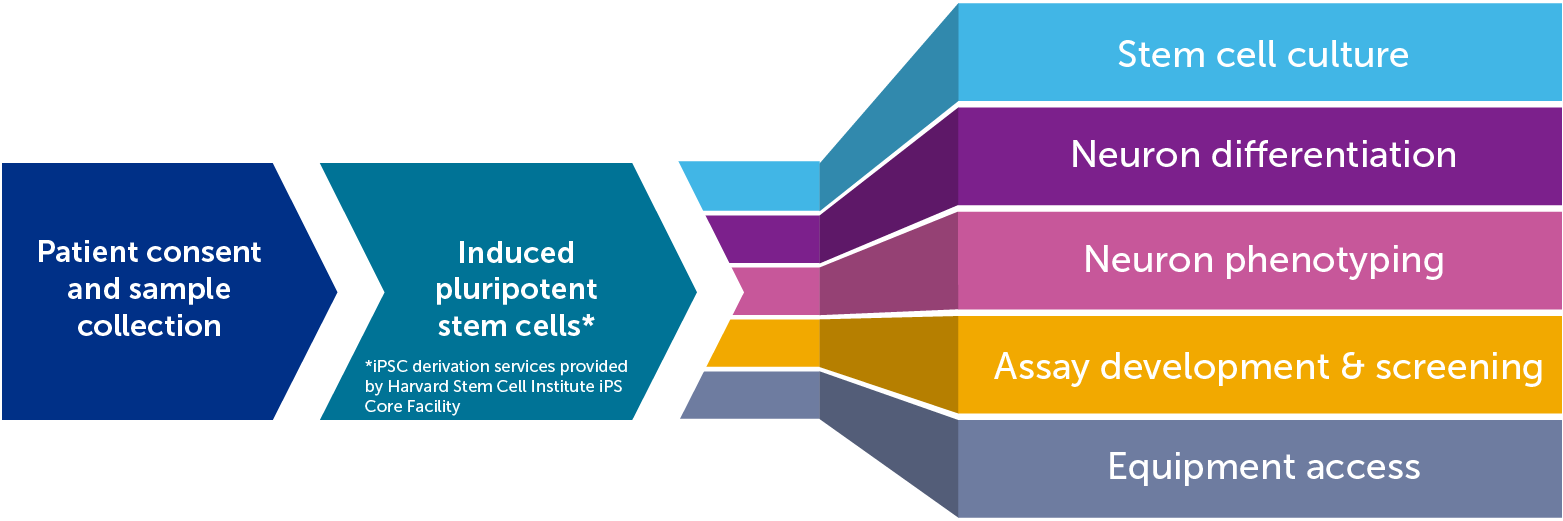Human Neuron Core | Overview
*The Human Neuron Core is now open. Please review our new COVID-19 standard operating procedures before booking or arriving to the core.
Our mission
Boston Children's Hospital's Human Neuron Core (HNC) offers a new paradigm for disease modeling and preclinical drug screening in an academic setting. The mission of the core is to bridge the gap between the clinic and basic researchers and help establish human induced pluripotent stem cell (iPSC)-derived model systems for neurological disorders as well as provide support for preclinical research developing screens to identify novel therapeutics. Generous funding from the Massachusetts Life Sciences Center has enabled us to significantly expand our equipment and services and open them to the broader research community.
The HNC exploits transformative stem cell technology for both modeling of specific diseases and screening of test compounds in human neurons derived from iPSCs. The goals of this service are to:
- develop standard operating procedures for the generation of different types of neuronal cell lines
- create neuronal cell lines from iPSCs derived from patients with specific diseases and from healthy controls
- compare key characteristics (e.g. shape, growth, synaptic connectivity, protein composition) of patient-derived and control-derived neurons
- identify disease-specific characteristics in patient-derived neurons
- screen drug candidates in disease-specific cell lines to greatly increase the speed and specificity of drug discovery
- compare results of these "pre-clinical" drug trials with clinical trials in patients.

HNC services
Services fall into three main categories:
- The Human Neuron Differentiation Service provides well-characterized human iPSC- derived neurons to academic investigators and industry collaborators to support translational research programs.
- The Phenotyping Service provides high content image analysis, multi-electrode array functional analyses, and targeted RNA sequencing of iPSC-derived neurons to help answer fundamental biological questions and/or establish assays for screening.
- The expanded Assay Development and Screening Facility provides multiple live-cell screening platforms that can assess image- and activity-based measures of live neurons in a medium/high-throughput capacity. This facility also provides robotics and liquid handlers to improve reproducibility of experiments across screening endeavors.
The HNC has been supported by generous grants from the Massachusetts Life Science Center (MLSC), the Intellectual and Developmental Disabilities Research Center (IDDRC), the the Tommy Fuss Center at Boston Children's Hospital, the Lou Lou Foundation for research on CDKL5, equipment grants from Boston Children's Hospital, and anonymous foundation donors.
